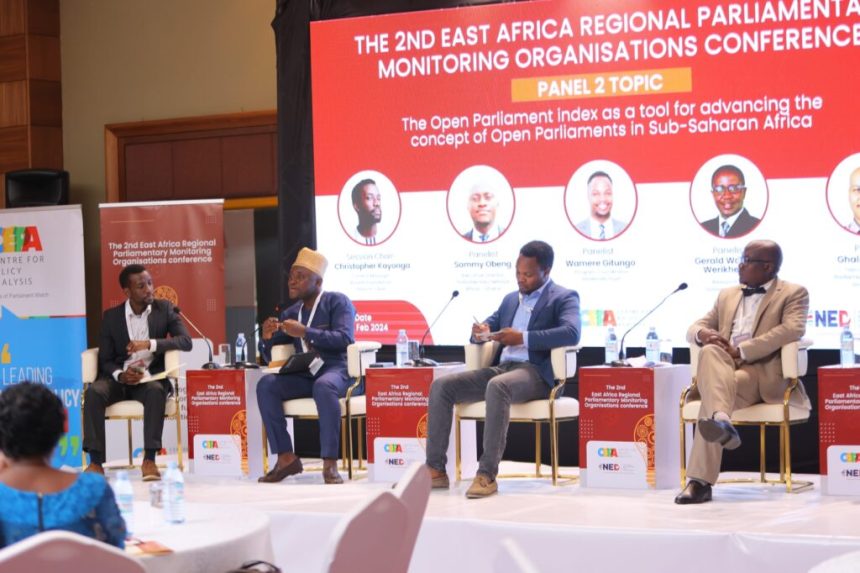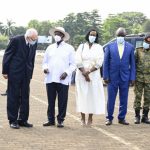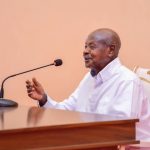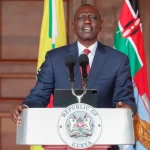The use of modern digital tools in monitoring the performance of Parliaments across the African continent has dominated the opening sessions of the 2nd East African Parliamentary Monitoring Organisations (PMOs) that is going on in Kampala.
The conference that brings together at least 10 PMOs from across Africa has been organized by Centre for Policy Analysis (CEPA) a Ugandan think tank that is also the home of Parliament Watch, a project that monitors Parliament of Uganda. The theme of the conference is; “Digital Technology and Parliamentary Monitoring: Re-imagining Futures and Possibilities.”
In the keynote speech read for her by Government Chief Whip, Hamson Obua, Speaker of Parliament, Anita Among, challenged the PMOs to harness the Artificial Intelligence (AI) to hold Parliaments accountable through citizen engagement via the digital tools.

Recognizing the role of the PMOs in keeping Parliaments in check and bringing the legislation process closer to the people, Among said that the digital technologies have been offering “unprecedented opportunities” to the citizens to access information about the work of the legislative arm of the states they come from.
The Speaker also challenged the PMOs to use the conference being held in Kampala to hold effective discussions about how to use the changing technology through AIs and Open Parliament Index (OPI) to enhance transparency and accountability while also empowering citizens to actively engage in democratic debates and hold their representatives accountable.

Moreover, embracing digital technology in parliamentary monitoring empowers us with evidence-based decision-making. By harnessing data analytics and AI, PMOs can analyse vast amounts of parliamentary data to extract meaningful insights, trends, and patterns. This analytical approach enables evidence-based advocacy and policy making, leading to more informed and effective decisions that directly benefit the citizens we serve, read part of Speaker’s speech.
Since the start of her tenure as Speaker, Anita Among continues to emphasise that Parliament of Uganda is “people-centered” and has opened the gates to the people of Uganda to visit and observe the proceedings of the plenary sittings. During the processing of different Bills in the Committees of Parliament, different stakeholders and private individuals have a chance to interface with the Members of Parliament to give an insight into how such legislation if passed into law will affect them.
The Speaker, however, reminded the PMOs attending the ongoing conference about the dangers of misuse of the digital tools hence arguing them to empower the citizenry with the right information and also finding ways of interactive digital engagements.
However, with these opportunities come challenges. The digital revolution has not only made data and information easily accessible but has also posed threats to freedom of expression and access to information. As PMOs navigate this digital landscape, they must constantly adapt to changing political tides while ensuring their relevance and effectiveness in promoting parliamentary transparency and accountability, she said.
The conference comes at a time when the Parliament of Uganda is under public scrutiny through a popular “Exhibition” on Parliamentary Accountability which is running on X. In the “Exhibition”, it is clear there is information shared anonymously making a lot of allegations about the management of budget of the Parliamentary Commission and this without being responded to may put the legislature into disrepute.
However, it is not clear how the Directorate of Communications and Public Affairs, Parliament of Uganda plans to challenge the possible misinformation from the ongoing “Exhibition” on X by giving the accurate accountability on most of the issues being raised by the citizens on the popular digital platform.
Conference host, Timothy Chemonges, Associate Director, CEPA said the two-day event will be used to explore the transformative potential of digital technologies in keeping Parliaments in check by the PMOs.
Chemonges, while highlighting the work being done by Uganda Parliament’s monitoring agency, CEPA under its Parliament Watch platform, revealed that in 13 years of CEPA’s work have changed the landscape in citizen engagement.
Our unwavering commitment to fostering a people-centered parliamentary democracy has been steadfast, driven by the belief that informed citizens are the cornerstone of effective governance, said Chemonges.
Today, I am proud to say that our efforts, along with those of our partners and stakeholders, continue to borne fruit. More Ugandans are not engaged in parliamentary matters, demanding greater accountability and transparency, he added.
He revealed that monitoring Uganda’s parliament has come with a host of challenges to the local PMO like resistance from some stakeholders hence a call for bridging the existing gaps and combating misinformation.
CEPA’s journey
As the host organization, CEPA has explained to the participants some of the digital innovations it has built to ensure that Parliament is in check while the citizens are aided to access information about the performance of their representatives.
According to Chemonges, CEPA has managed to cause public debates and empower the citizens to engage more on parliamentary issues through the tools like; budget tracker, debt tracker, Bills tracker, Hansards tracker and live coverage of Parliament sessions.
Since we started using these tools, we have seen a lot of changes in the way the Parliament of Uganda does its work. We are glad that Parliament has started doing some of the things that we are doing. Such as live tweeting and live coverage of the House proceedings, he said.
CEPA has managed to create a one-stop centre for information that citizens have been struggling to access. Such documents include the Bills tabled in Parliament, the Committee reports and some of the important statements presented by the Ministers.
Continental efforts
Caroline Gaita, Executive Director for Mzalendo, Kenya’s Parliament Monitoring Organisation, recounted the short journey the PMOs on the continent have embarked on to monitor the legislative processes in different countries.
Gaita revealed that after the inaugural engagements in Accra, Ghana in 2022, the African Parliamentary Monitoring Organisations Network (APMON) which she chairs has registered a good start to the journey of putting Parliaments in check. The first EAPMON conference was hosted by Mzalendo Trust in Nairobi last year.
In reflecting on the first conference held last year, we explored ways to strengthen the community of practice for African PMOs with the aim of achieving openness in the respective Parliaments we monitor at country level and regional legislatures as well. We got to learn about the incredible work that PMOs in the region are doing to enhance Parliamentary openness either through the development of research and data, the use of civic tech tools to monitor proceedings and Parliament votes and measuring the performance of Parliaments and its members, said Gaita.
Gaita also informed the gathering that because of the digital tools in place, people are able to know how the governments are operating, giving an example of Kenya’s last general elections where technology was able to check the information process and the eligibility of the registered voters.
Today, technology has become critical at both national and subnational levels in ensuring openness in government procurements, citizens accessing government services and how citizens engage with their Parliament and representatives. Public participation, a key component hailed in the Kenyan Constitution, also relies on technology for efficiency i.e awareness-creation on public participation calls and provision of feedback to the public on any submissions made. The same can be said for the countries represented here today. But is the current model working? That is one of the questions we hope to address in the next two days, she added.
She challenged the PMOs and the Civil Society Organisations (CSOs) to work together in ensuring that technology advances democracy, bridge the gap between the governments, parliaments and citizens.
Cognizant of the fact that Parliaments are investing more in technology to enhance their operations like we have seen in Kenya, PMOs like ourselves need to think of ways to stay ahead of the curve while monitoring Parliaments. How do we harness the power of technology to hold Parliaments accountable? In the same breadth, we are challenged to brainstorm on ways we can address emerging challenges that come with the use of technology such as misinformation and disinformation that threaten to derail working democracies in the continent, added Gaita.
During the two days of the conference, conversations are being centered around; Parliamentary Monitoring and Democracy in the digital age; the open Parliament index as a vital tool for advancing the concept of open parliaments in Sub-Saharan Africa; and, Parternships, Financing and Sustainability.








